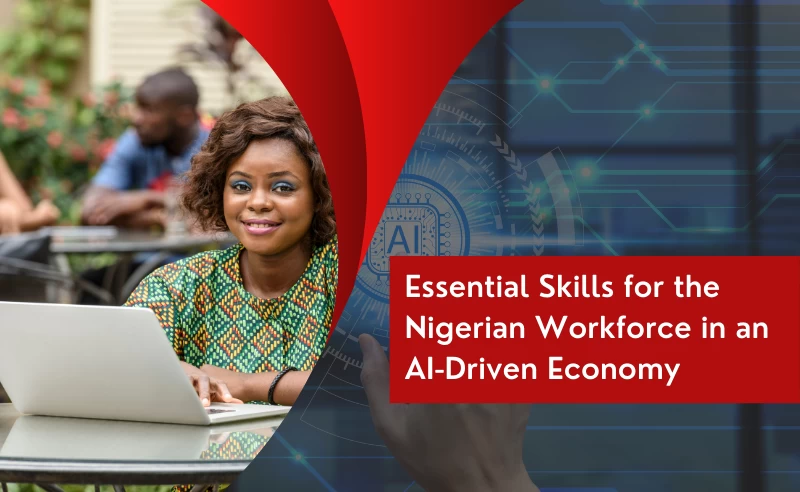 Olugbemi. Adeyinka Ogunleye
6 months ago
Olugbemi. Adeyinka Ogunleye
6 months ago
Overview
Discuss The Skills And Competencies Needed For The Nigerian Workforce To Thrive In An AI-Driven Business Environment
No matter whether you are an established business owner or an enthusiast who is planning to venture into the dynamic commercial landscape, getting the right pulse of the market is mandatory. In 2024, you might have noticed how fast and dramatically things keep altering at a lightning pace. Digital transformation in the present context is no longer just a buzzword; it’s a reality that’s reshaping how companies will continue to operate, especially in Nigeria. With the rise of exponential growth in the arena of AI, businesses are finding innovative ways to streamline processes, hone the degree of customer experiences, and make smarter decisions. In this writing piece, we are going to delve deeper into the key skills that the Nigerian commercial sector requires now to reap the advantages of AI and it can also help in upliftment of the online community in Nigeria
The Importance of Artificial Intelligence in Nigerian Business
Nowadays AI’s integration has reached beyond mere automation and when it comes to Nigerian business, it has become a catalyst for innovative roles. As AI continues to weave its way into various industries such as finance, healthcare, agriculture, and others, there’s a growing need for employees to develop a fresh set of skills and competencies. As per Statista, the market size of AI is anticipated to reach USD 1.05 bn in 2024. So entrepreneurs hailing from Nigeria have the complete liberty of utilising AI technology for yielding the humongous profit results.
Economic Impact of AI in Nigeria
As per a recent report of PwC, AI in the upcoming year is projected to add up to $15.7 trillion to the global economy by the year 2030, for emerging economies like Nigeria, AI integration and full-fledged adoption of it will boost the GDP significantly and at the same time, it will end up generating more employment scopes for the citizens of this country.
Industry-Specific Benefits
Agriculture is a pivotal sector in Nigeria and owing to that, 36% of the total population of this country is associated with this sector. AI technologies with innovative features like predictive analytics and machine learning are accelerating the process of yielding good crops and improving the process of resource allocation. On the other hand, in the healthcare sector, AI-powered diagnostic tools can improve diagnostic accuracy by 20-30%, leading to better patient satisfaction.
Key Skills and Competencies Required for the Nigerian Workforce
Critical Thinking and Problem-Solving-
In an AI-driven environment, it becomes essential to indulge in the process of critical thinking to fuel the development of innovative solutions for the business community in Nigeria. Here the conventional approach will no longer work to produce the desired standard of outputs.
Decision Making-
To accommodate AI, it appears to be highly important to rely on the consolidated decision-making skill that aids in analyzing the variety of critical and complex ideas to come to a final decision for creating a win-win scenario.
Effective Communication-
Communication skills are essential for employees to work effectively in teams, share knowledge, and coordinate with members across varied departments and organizations. An online community in Nigeria is facilitating effective communication among the youths and encouraging them to present creative ideas in the workplace.
Adaptability-
Most importantly, employees must have the urge to learn in a new environment and adapt to it effortlessly.
Digital Literacy-
Last but not least, the digital literacy of the employees must be on point to make strategic use of AI and capitalize on its benefits.
Final Thoughts
As the commercial landscape is rapidly evolving, to thrive in this sphere, it has become mandatory to stay informed and connected with the business community in Nigeria. To get a pulse on the AI industry trends, new entrepreneurs must train their employees with the required soft skills for superior business experience. This holistic approach to workforce development will prove to be key in ensuring that Nigerian businesses remain competitive in the global economy.



